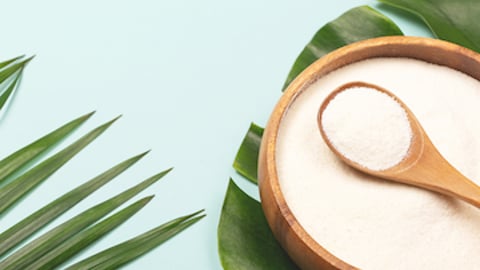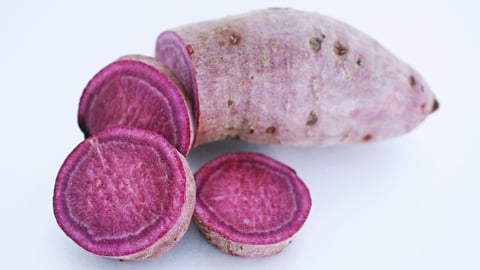Four things to know about moringa
1 DETOX AND PROTECT
The moringa is a tree with nutrient-dense leaves that are high in protein. Its leaves are traditionally eaten raw, ground into a powder, or steeped as a tea. “Moringa has many important vitamins and minerals,” explains Pierre Thiam, chef and founder of Yolélé Foods, which includes moringa as an ingredient in its chip and pilaf lineups. “There are many health benefits associated with moringa including treating diabetes, reducing blood pressure, protecting the liver and healthy bones, to name a few.” Moringa also has anti-inflammatory and antioxidant properties, along with digestive and detoxifying benefits, according to Shelley Balanko, senior vice-president of The Hartman Group.
2 THE TREE OF LIFE
While the drought-tolerant moringa tree is native to India, it also grows in Asia, Africa, South America and Haiti. “Moringa has been used as a traditional remedy in Ayurvedic healing for many centuries,” The Hartman Group’s Shelley Balanko explains. “Today, the moringa tree is cultivated across Africa and Haiti through women’s agricultural cooperatives, enabling women to generate income, fight poverty and malnutrition and gain bargaining power within their communities.”
3 FUNCTIONAL BENEFITS
When it comes to selling and promoting moringa, grocers can get creative. “As consumers increasingly shop for specific occasions and seek functional benefits, it would be advantageous to group products in this way,” says The Hartman Group’s Shelley Balanko. “Employ signage that directs consumers to these ‘benefit areas’ within the store or online shopping platform.” Vancouver- based Farafena sells moringa leaf powder as part of its product lineup. Founder Oumar Barou Togola, says customer education can help fuel sales of moringa products. “Highlight the amazing nutritional benefits and environmental impacts,” Barou Togola explains, “and, most importantly, the benefits to smallholder farmers.” Companies like Farafena and Yolélé work closely with smallholder farmers, which are mostly owned and operated by families and are located in rural areas of developing countries. “We introduced the African moringa [to our product lineup] to be able to provide a platform where African women farmers could elevate themselves and their communities through this ancient healthy plant,” says Barou Togola. Sharing stories like this with customers can further help grocers promote and sell moringa products.
4 MORE MORINGA
Rachel Bukowski, senior team leader of product development at Whole Foods Market, says powdered moringa is the most popular way its customers consume moringa. “It’s common to add it to smoothies, sauces and baked goods,” she says. Powdered moringa is also added to packaged goods such as frozen desserts, protein bars, teas, sparkling waters and packaged grain blends. Recent additions to Whole Foods’ shelves include Sunscoop’s Mmmint Chip! Dairy Free Dessert featuring moringa, and Elements Truffle Maple Toffee with Moringa Artisanal Chocolate. Whole Foods recently listed moringa on its list of top 10 trends to watch in 2022.
Renewed interest in immunity and digestion during COVID-19 has helped fuel moringa’s recent popularity, adds The Hartman Group’s Shelley Balanko. “The pandemic has focused consumers’ attention on prevention, and it’s become a mainstream belief that the root of all wellness is healthy digestion,” she explains. “Inherently functional ingredients, like moringa that deliver these benefits will have strong appeal.” Yolélé’s Pierre Thiam also believes consumers are becoming more conscious of the climate impacts of their purchases, which is another reason they’re drawn to moringa. “They are looking for food that’s good for them and the planet,” he explains. “Moringa is a superfood that fits this category.”
This article appeared in Canadian Grocer's December 2021/January 2022 issue.



